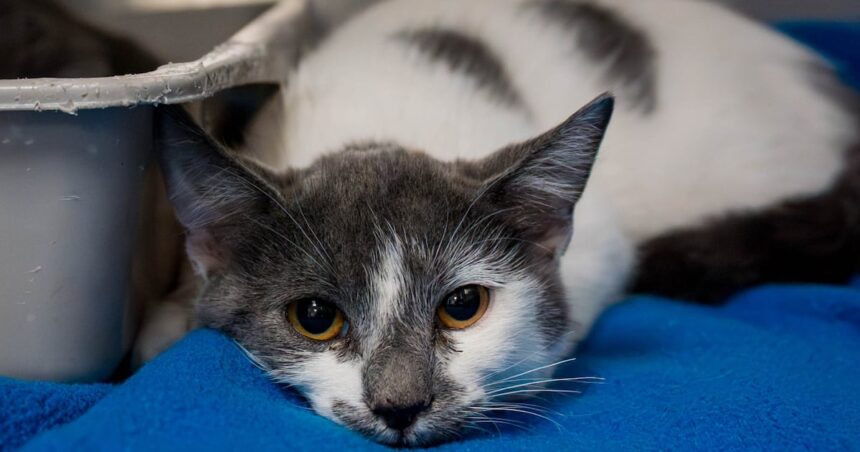In an extraordinary case of animal hoarding that has shocked local authorities, the Montreal SPCA is now facing the challenging aftermath of rescuing 29 cats from a cramped apartment in the city’s east end. The overcrowded living conditions prompted an emergency intervention last week, leaving the shelter with an unexpected influx of felines requiring immediate care and new homes.
“What we discovered was deeply concerning,” said Marie Tremblay, head of animal welfare at the Montreal SPCA. “These cats were living in severely congested conditions that compromised their health and well-being. Many showed signs of respiratory infections and malnutrition.”
The rescue operation, conducted in partnership with local law enforcement, revealed cats of various ages crowded into a one-bedroom apartment approximately 500 square feet in size. Animal welfare officers described finding cats hidden in closets, under furniture, and even inside kitchen cabinets.
In response to this sudden increase in their feline population, the Montreal SPCA has announced a special adoption discount initiative running through August 15th. Adult cats over one year old will be available for adoption at $75, significantly reduced from the regular $175 fee.
“This isn’t just about finding homes quickly,” explained Dr. Antoine Bernard, veterinary director at the shelter. “Each cat requires medical attention, behavioral assessment, and socialization before being ready for adoption. Our resources are stretched thin, but we’re committed to ensuring every animal receives proper care.”
According to the SPCA’s statistics, this case represents one of the largest single-residence cat hoarding situations they’ve encountered in the past five years. The organization typically sees a 30% increase in animal surrenders during summer months, making this additional influx particularly challenging.
The former owner of the cats, whose identity remains protected due to ongoing investigation, is cooperating with authorities. Initial reports suggest mental health challenges may have contributed to the situation, with what began as taking in a few strays evolving into an overwhelming collection over several years.
“This case highlights the complex intersection of animal welfare and human social services,” noted Caroline Dubois, a social worker who specializes in cases involving animal hoarding. “Often, the individuals involved don’t recognize the harm being caused, genuinely believing they’re helping these animals.”
For Montrealers interested in adoption, the SPCA emphasizes that each rescued cat has undergone thorough medical examination and received appropriate vaccinations, deworming, and flea treatments. Many have also been spayed or neutered as part of their preparation for new homes.
“Adopting one of these resilient animals means giving them a second chance at a quality life,” said Tremblay. “We’ve been moved by how gentle and sociable many of these cats are, despite their difficult past circumstances.”
The SPCA has created dedicated spaces within their facility to accommodate the rescued cats, with separate areas for those requiring isolation due to medical concerns. Volunteers have stepped forward to provide additional socialization time, helping prepare the cats for eventual placement with new families.
As Montreal faces this challenging animal welfare situation, what responsibility do communities have in identifying and addressing animal hoarding before it reaches crisis levels?

























